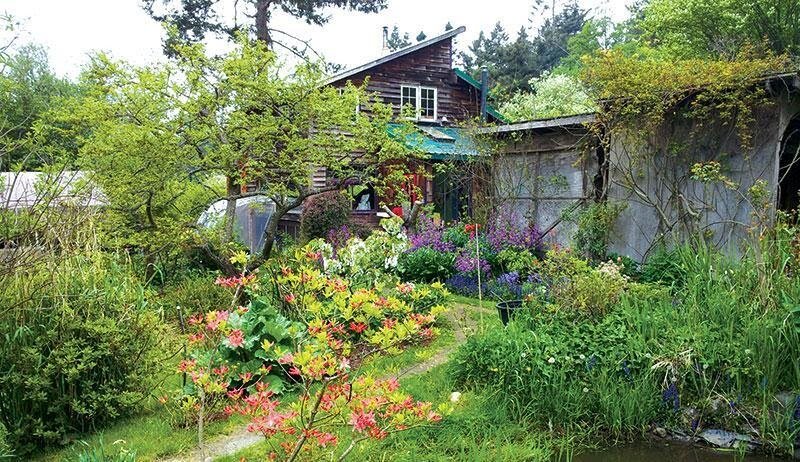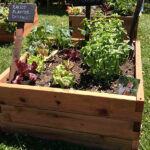Are you fascinated by the idea of keeping bees in the city? You’re not alone. Many people are turning to urban beekeeping as a rewarding and sustainable hobby. Whether you’re a seasoned homesteader or a curious beginner, these urban beekeeping tips will guide you on your journey to becoming a successful beekeeper. In this article, we’ll explore everything you need to know about urban beekeeping, from choosing the right location to maintaining healthy hives.

Understanding Urban Beekeeping
Before diving into the world of urban beekeeping, it’s essential to understand what it entails. Urban beekeeping refers to the practice of maintaining beehives in urban areas, such as rooftops, balconies, or small gardens. This practice has gained popularity due to its potential to support local ecosystems and provide fresh honey.
Why Urban Beekeeping?
One of the main reasons people choose urban beekeeping is to contribute to the environment. Bees play a crucial role in pollinating plants, which helps maintain biodiversity and supports local food production. Additionally, keeping bees can be a therapeutic and educational experience, allowing you to connect with nature right in the heart of the city.
Getting Started with Urban Beekeeping
If you’re considering urban beekeeping, here are some essential steps to get started:
Check Local Regulations
Before setting up your beehive, it’s important to check local regulations regarding beekeeping. Some cities have specific rules and permits that you need to follow. Ensure you comply with these regulations to avoid any legal issues.
Choose the Right Location
Finding the perfect spot for your beehive is crucial. Ideally, the location should receive plenty of sunlight and be away from heavy foot traffic. Rooftops, balconies, or small gardens are excellent options for urban beekeepers.
Selecting the Right Equipment
Investing in the right equipment is essential for successful urban beekeeping. Here’s a list of basic equipment you’ll need:
Beehives
Choose a beehive that suits your needs. Langstroth hives are popular due to their modular design and ease of use. They consist of stacked boxes with removable frames, making it easier to inspect and manage the hive.
Protective Gear
Safety should be a top priority. Invest in protective gear, including a beekeeper suit, gloves, and a veil. This equipment will protect you from bee stings while you work with the hive.
Maintaining Healthy Hives
Once your beehive is set up, it’s essential to maintain the health and productivity of your bees:
Regular Inspections
Conduct regular inspections of your hive to check for signs of disease, pests, or other issues. Look for healthy brood patterns, adequate food stores, and the presence of a queen bee.
Providing Adequate Nutrition
Ensure your bees have access to a diverse range of flowers for foraging. Consider planting bee-friendly plants in your garden or rooftop to provide additional food sources.
Harvesting Honey
One of the most rewarding aspects of urban beekeeping is harvesting your own honey. Here’s how to do it:
Timing the Harvest
Harvest honey in late summer or early fall, when the bees have had ample time to collect nectar. Ensure you leave enough honey for the bees to survive the winter months.
Extraction Process
Use a honey extractor to remove honey from the frames. This process involves spinning the frames to extract the honey without damaging the comb.
Challenges and Solutions
While urban beekeeping is rewarding, it comes with its challenges:
Dealing with Pests
Pests like varroa mites and wax moths can threaten your hive. Regular inspections and treatment methods, such as using screened bottom boards, can help manage these pests effectively.
Managing Swarms
Swarms are a natural part of beekeeping, but they can be managed. Regularly inspecting the hive and providing enough space for the colony can prevent swarming.
Learning from Other Beekeepers
Connecting with other beekeepers can enhance your knowledge and skills:
Join Beekeeping Clubs
Consider joining a local beekeeping club or online community. These groups provide valuable resources, support, and opportunities to learn from experienced beekeepers.
Attend Workshops
Participate in beekeeping workshops or courses to improve your skills and stay updated with the latest practices in urban beekeeping.
Contributing to Sustainability
Urban beekeeping aligns with sustainable living practices:
Supporting Local Agriculture
By keeping bees, you contribute to local agriculture by supporting pollination and increasing crop yields. Your efforts positively impact the environment and local food production.
Reducing Carbon Footprint
Producing your own honey reduces the need for transportation and packaging, ultimately lowering your carbon footprint.
Connecting with Nature
Urban beekeeping offers a unique opportunity to connect with nature:
Observing Bee Behavior
Spend time observing bee behavior and learn how these fascinating creatures communicate and work together. This experience fosters a deeper appreciation for nature.
Educating Others
Share your knowledge and experiences with friends, family, and your community. Educating others about the importance of bees can inspire them to make positive changes for the environment.
Conclusion
Urban beekeeping is a fulfilling and sustainable hobby that allows you to contribute to the environment while enjoying the rewards of honey production. By following these urban beekeeping tips, you’ll be well-equipped to start your beekeeping journey. Remember to check local regulations, choose the right location, and invest in quality equipment. Maintain healthy hives through regular inspections and provide adequate nutrition for your bees. Embrace the challenges and learn from other beekeepers to enhance your skills. Ultimately, urban beekeeping offers a unique opportunity to connect with nature and support sustainable living.

FAQs
Q1: Is urban beekeeping legal in all cities?
A: Urban beekeeping is not legal in all cities. It’s important to check local regulations and obtain any necessary permits before starting.
Q2: How much space do I need for a beehive?
A: A small garden, rooftop, or balcony can accommodate a beehive. Ensure the location receives enough sunlight and is away from heavy foot traffic.
Q3: How often should I inspect my beehive?
A: Regular inspections every 7-10 days during the active season are recommended to monitor hive health and address any issues promptly.
Feel free to explore more about homesteading on homesteading and homesteading budget.
Learn about food fermenting and root cellars.






